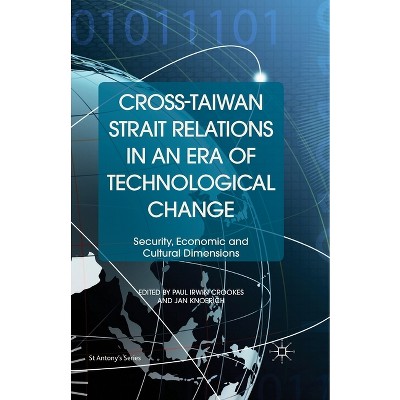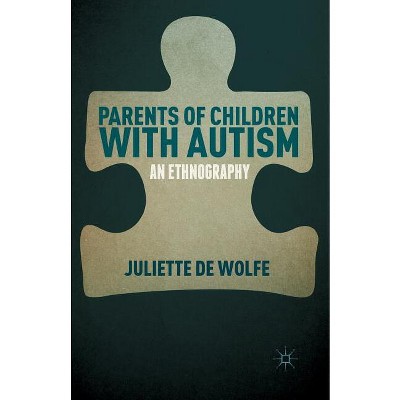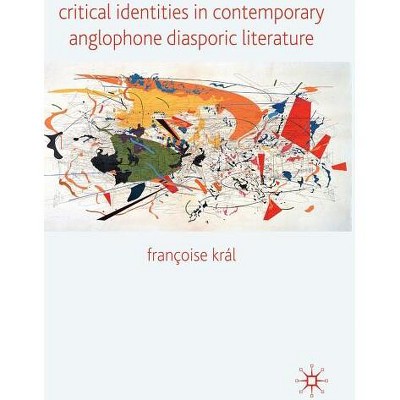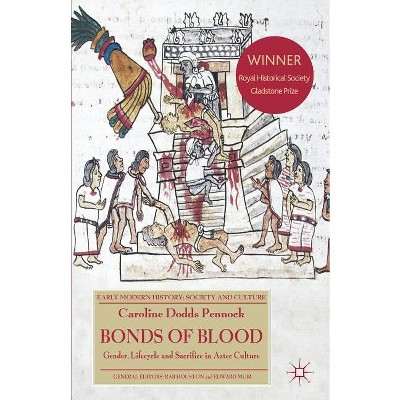Collective Memory and National Membership - by Kenneth A Loparo (Hardcover)

About this item
Highlights
- This study seeks to explain the impact of historical narratives on the inclusiveness and pluralism of citizenship models.
- About the Author: Meral Ugur Cinar received her PhD in Political Science from University of Pennsylvania in May 2012.
- 169 Pages
- Political Science, Comparative Politics
Description
About the Book
"This study explores the role played by collective perceptions of the past in constructing, maintaining, and challenging views of citizenship and national identity while taking divergent visions of the past seriously. It seeks to understand how much of the disparity in the way citizenship questions are approached can be explained by the differences in visions of the past. Drawing on comparative historical analysis of two post-imperial core countries, Turkey and Austria, this volume explores how differences in perspectives on the past inform citizenship debates. It looks at the ways in which different forms of historical narratives foster certain citizenship models and create resistance against others. By doing this, it develops a conceptual framework applicable beyond the two cases when analyzing the history-identity nexus at the collective level"--Book Synopsis
This study seeks to explain the impact of historical narratives on the inclusiveness and pluralism of citizenship models. Drawing on comparative historical analysis of two post-imperial core countries, Turkey and Austria, it explores how narrative forms operate to support or constrain citizenship models.Review Quotes
'In her bold and erudite comparative study, Ugur Cinar boldly identifies the remote but powerful impact exerted not by the content but by the type of narrative nations and peoples embrace.' Ian S. Lustick, Bess W. Heyman Professor, University of Pennsylvania, USA
'Meral Ugur Cinar's insightful book is a central contribution to contemporary discussions of citizenship, identity, and inclusion. In this book, she traces the way in which the interpretation and institutionalization of the past shapes present national identity and the inclusionary potential of citizenship. The original research on Austria and Turkey will be essential to specialists, but the theoretical development will be more broadly influential. In particular, her development of the history-identity nexus provides a systematic way to evaluate the way in which longstanding narratives of history, culture, and identity take shape and constrain contemporary politics. Her book will be required reading for political scientists interested in Turkish and Austrian politics as well as for scholars of citizenship and nationalism.' Inés Valdez, Assistant Professor, The Ohio State University, USA
'This book represents the best of a new generation of scholarship on nationalism and collective identity: it is theoretically sophisticated, tightly argued, and well versed in the two significant and interesting case studies of Austria and Turkey. Its author, Meral U?ur Ç?nar, also represents the best of a newgeneration of young Turkish scholars: international in their perspective and understanding, and able to bring fresh perspectives to both Turkish studies, and to the global significance of the Turkish experience.' John VanderLippe, Associate Professor of History, The New School for Social Research, USA
About the Author
Meral Ugur Cinar received her PhD in Political Science from University of Pennsylvania in May 2012. She was a Mellon Interdisciplinary Postdoctoral Fellow at the New School for Social Research in 2012-13. Her articles are published in PS: Political Science and Politics, Political Studies, Middle Eastern Studies, and Turkish Studies as well as in book chapters. She also co-authored an article with Kursat Cinar that has won the 2013 Sabanc? International Research Award. She is currently Assistant Professor at Bilkent University, Turkey.










